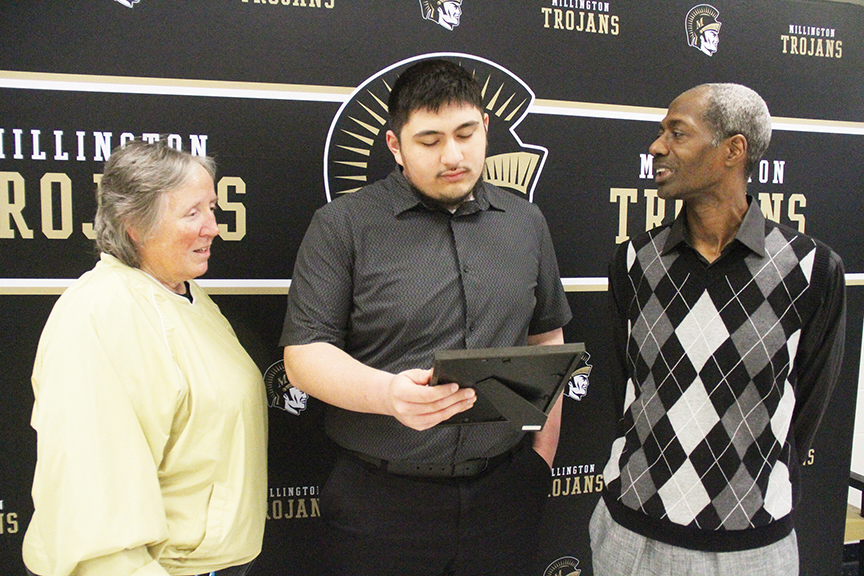By Thomas Sellers Jr.
The most unforgettable day of my life happened 20 years ago.
Walking out of my theater class on the campus of The University of Memphis on the morning of September 11, 2001, the eerie quietness caught me by surprise. My 10 minute walk across most of the entire campus made me say out loud… “What is going on? Is today special or something?”
Unknown to my conscience at the time, 9/11 was in the process of becoming a landmark day. The subject of history books, shaping laws and causing a ripple effect across the world, the terrorist attacks that day were heading into phase 2.
I walked into the University Center with most of my peers circled around the floor-model TV like a campfire. The glow coming off the screen was one of the towers of the World Trade Center burning.
Thinking it was a movie trailer, “This a stunt form the new Arnold Schwarzenegger movie?” Then a classmate said to me, “No man, America is under attack… we’re under attack.”
I dropped on my behind in shock. Seconds later, the second plane hits the other tower. I just witnessed history. I knew then our world would never be the same. The Pentagon was hit in Washington D.C. in addition to the chaos in New York City.
A fourth airplane was taken down over Pennsylvania preventing another historic United States landmark from being destroyed.
On that morning, four commercial airliners traveling from the Boston area heading to California were hijacked by 19 al-Qaeda terrorists. The hijackers were organized into three groups of five hijackers and one group of four. That day we lost 2,977 lives with more than 25,000 injured.
That day more than 20 years ago had impacted the world and the United States forever. What 10 changes since September 11, 2001 still have a ripple effect today?

10. Patriotism
Well that didn’t last too long. The days after the 9/11 attacks, from coast to coast and even in Hawaii and Alaska the red, white and blue pride was in full strength. Many Americans expressed pride in the country after those tragic events. From powerful songs composed to made-for-TV sporting events, American pride was trendy.
The Super Bowl that season had one of the best logos ever. The NFL changed it to a patriotic look and we got our first February holiday classic too. The New England Patriots winning the game was a coincidence.
Other positive side effects from the 9/11 attacks were organizations having increased volunteering. Blood donations went up and enrollment into the military increased at the same time. But over the past 20 years, we’ve slowly gotten back to selfish behavior and being divided by race, gender, politics and much more.
9. Increased racism to Muslims
Right after the attacks there was increased violence and racism against Muslims. Those identifying as Muslims or having the features of a person from the Middle East was met with bias and hate. According to a Pew Research Report, 15 years after the attacks, assaults against Muslims in the US increased by almost 50 percent.
Within 10 years after the attacks, a majority of Muslims surveyed said they experienced some form of racism or discrimination. At one point, part of our patriotism involved mistreating our Muslim brothers and sisters.
8. Increase in
deportations
With labels being passed around to those in the United States with Middle East origins, the country saw an increase in deportations. After 9/11, the George W. Bush Administration ramped up deportation efforts and increased immigration restrictions in response to the attacks. The number of deportees doubled during that time. From 2001 to 2012, there was a 400 percent increase in criminal deportations. Most of those people were charged with a crime, but not necessarily convicted.
7. Changed news
coverage
After the Gulf War, the major news outlets of NBC, ABC and CBS were cutting back on international news coverage. The new dog in the media playpen Fox News didn’t have a super strong presence in the foreign market.
Then 9/11 hit and all news companies got rolling on reporting the happenings around the world. Journalists started to connect the dots again to keep up abreast on policies. Now Americans had a thirst for international information to keep from being shocked again.
Another change in news coverage is devoting multiple resources to one story.
The team coverage of 9/11 has been duplicated for other major news events like Hurricane Katrina and Boston Marathon bombing. All angles of a tragedy is what we’ve come to expect for news coverage in 2021.
6. New Vocabulary
We learned new phrases as adults and our children will read in textbooks about: “War on Terror,” “9/11,” “Never forget,” “Homeland Security,” “The Axis of Evil,” “Patriot Act,” and “Terror Alert.”
5. Surveillance almost everywhere
Speaking of the Patriot Act, nearly 2 months after the attacks the United States passed the Patriot Act. Basically the government expanded its authority over phone and email communications. In the name of national security, this act made it easier for the government to closely watch Americans.
And companies and local businesses invested more into cameras to record comings and goings for 24 hours. If the 9/11 attacks happened today, we would have more than 15 viewpoints of the planes crashing into the buildings.
4. Airport security is stricter
I haven’t flown on an airplane since 2000. So I haven’t experienced the new security measures out airports. But I have heard enough stories from friends and family members about the restrictions, changes and headaches. Before 9/11, it was rare to have a long line at the airport. But once commercial flying returned in November 2001, the Transportation Security Administration was created. The TSA was a direct result of the 9/11 attacks, and the tight security measures haven’t let up in the 20 years since its conception.
On flights, cabin doors are protected to keep pilots safe and screening has increased tremendously. New technology has evolved to make it even easier for airport security officials to find restricted materials and advanced screening methods and background checks.
3. Stronger security
Now I have driven a few people to the airport since 2001 for their flights. It is a long list of dos and don’ts just for that venture.
Then I started to notice other security measures outside of the airport because of 9/11. Security has increased in the U.S. American businesses and schools. We have to buzz to get into those places and there are automatic-locking doors and keypads.
Try to just walk into a government building from your local city hall to the senate of your state. Get ready for the metal detector. And just be prepared to fill out a questionnaire and pledge on the record that you are not a terrorist.
2. Afghanistan
Should we stay or should we go? That song might have played in the White House for Bush, Barack Obama, Donald Trump and now Joe Biden.
One of the most persistent effects of the 9/11 attacks has been the ongoing war in Afghanistan. It all started when then President Bush ordered the bombing of Afghanistan because of the Taliban-ran government. The Taliban refused to hand over the leader and mastermind of the 9/11 attacks Osama Bin Laden.
That October began our military efforts in Afghanistan.
The conflict going on for two decades is a subject in the news today with the withdrawal of U.S. troops. The Taliban is having a resurgence in Afghanistan at the moment. Leaving a lot of U.S. American citizens with several questions including, “Was the mission accomplished?”
1. The Department of Homeland Security
The Department of Homeland Security was created on September 22, 2001. The function of the DHS is to oversee national strategy and national security. It was created to protect the country against another wide-scale terrorist attack through the use of information gathering and department-led investigations.
That department gave us our terror alerts and introduced new measures of security via press conferences throughout 2001 and 2002. Today, the department is still a major player in our safety and seems to be doing a decent job of preventing the next 9/11.
THOMAS SELLERS JR. is the editor of The Millington Star and both the sports editor and a weekly personal columnist for West 10 Media/Magic Valley Publishing. Contact him by phone at (901) 433-9138, by fax to (901) 529-7687 and by email to [email protected].



